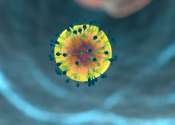Right program could turn immune cells into cancer killers
Cancer-fighting immune cells in patients with lung cancer whose tumors do not respond to immunotherapies appear to be running on a different "program" that makes them less effective than immune cells in patients whose cancers ...
Sep 9, 2021
0
73









